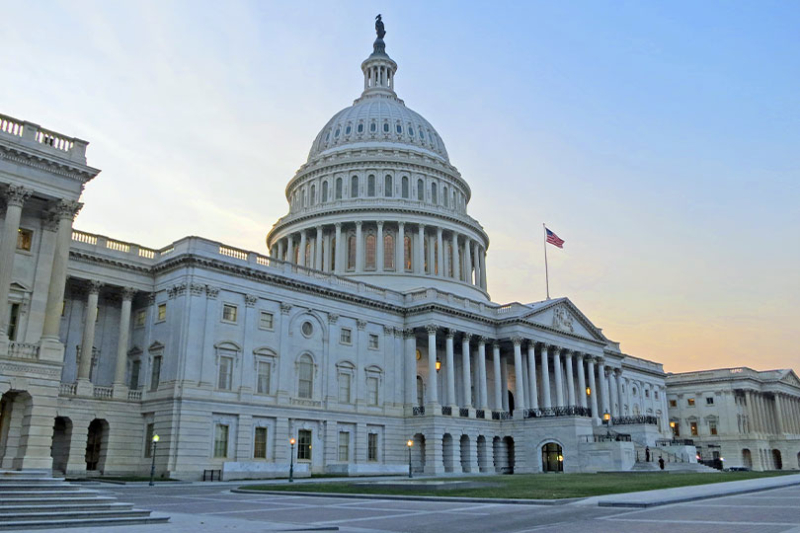By Jessica Domel
Multimedia Reporter
As the nation approaches the deadline for Congress to fund the government past Sept. 30, the American Farm Bureau Federation (AFBF) is urging lawmakers and the Trump administration to reach a deal to avoid a partial government shutdown.
“A government shutdown affects all American families and has significant consequences broadly speaking. As it relates to agriculture specifically, where our concern really would be is the interruption of critical services, delays in payments and just more strain on rural communities already feeling pressure,” Emily Buckman, AFBF director of Government Affairs, told the Texas Farm Bureau Radio Network.
If Congress fails to pass legislation to fund the government past midnight Tuesday, a partial government shutdown will occur—the first since the winter of 2018-19.
“Each shutdown varies. The length certainly matters, as well. We certainly, as an organization, do not want to see a government shutdown,” Buckman said. “We want the Congress and president to work together to pass a funding bill so that they can get back to negotiating long-term solutions.”
In mid-September, the U.S. House approved a short-term government spending package that will fund the government through Nov. 21.
The bill failed to pass the U.S. Senate.
“We saw the Senate consider two different pieces of legislation. One was the bill that passed out of the House of Representatives that would extend government funding into November, and then another piece of legislation, which was introduced by the Democratic minority, would extend government functions into the end of October. It would extend government functions by one month but also attach the extension of the Affordable Care Act tax credits,” Buckman said. “That has been a huge part of this conversation leading up to the funding deadline.”
If there is a government shutdown, how things move forward could vary from how things operated in a previous shutdown.
According to The Hill, Social Security, veterans, disability and retirement payments would continue. There could be delays in customer service and administration though, as staff could be furloughed.
The Supplemental Nutrition Assistance Program, which is included in the farm bill, and Women, Infants and Children (WIC) would continue to be funded, but could be at risk if the shutdown continues for an extended period of time.
If there is a government shutdown, it could potentially impact farm bill program payments if federal employees are furloughed.
“We certainly could see delays. Every administration has their own shutdown plans. We actually just saw some information that came out of the president’s budget office on what they would intend to do with programming across the federal government,” Buckman said. “It really just depends on staffing decisions, and not everybody is deemed essential. That really has a trickle down effect on services that are provided by agencies like the U.S. Department of Agriculture.”
According to Agri-Pulse, U.S. Secretary of Agriculture Brooke Rollins said last week details on how USDA would be impacted are being worked out.
She said the “incredible and important programs, especially those that help farmers, shouldn’t be affected by the shutdown.”
On Monday afternoon, President Trump met with House and Senate leadership to try to work out a deal to fund the government, at least temporarily, to avoid a shutdown.
“As an organization, we certainly do not want a government shutdown. We’ve seen the ramifications of what that looks like before,” Buckman said. “Currently, farmers are weathering an economic storm, and the last thing they need is to have a government shutdown on top of all their other worries.”
The situation is fluid as negotiations continue and the funding deadline approaches.


Leave A Comment